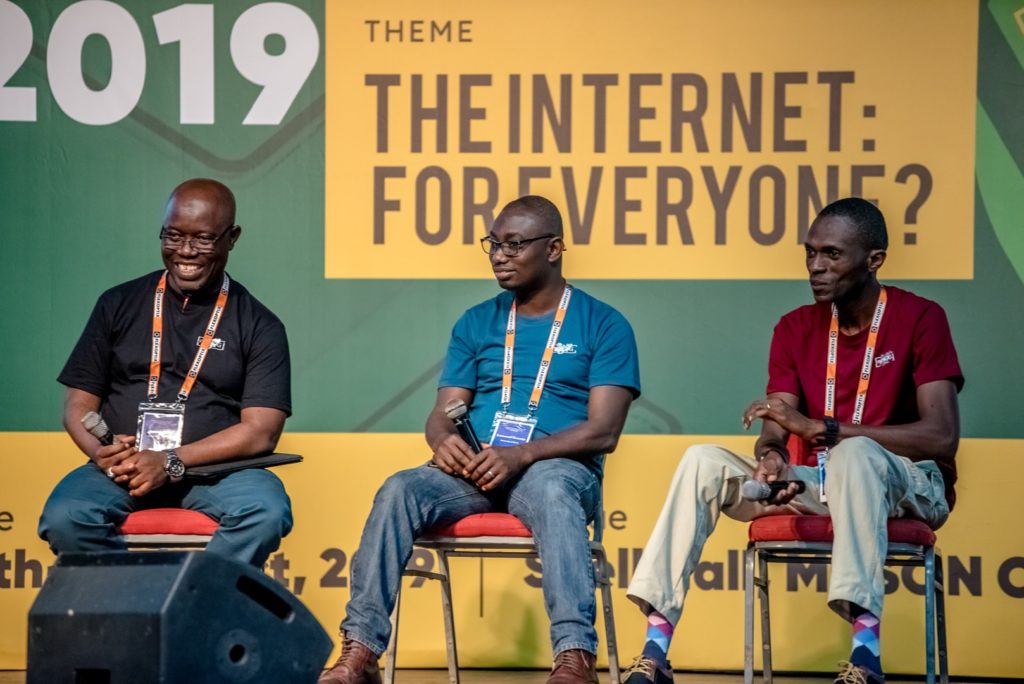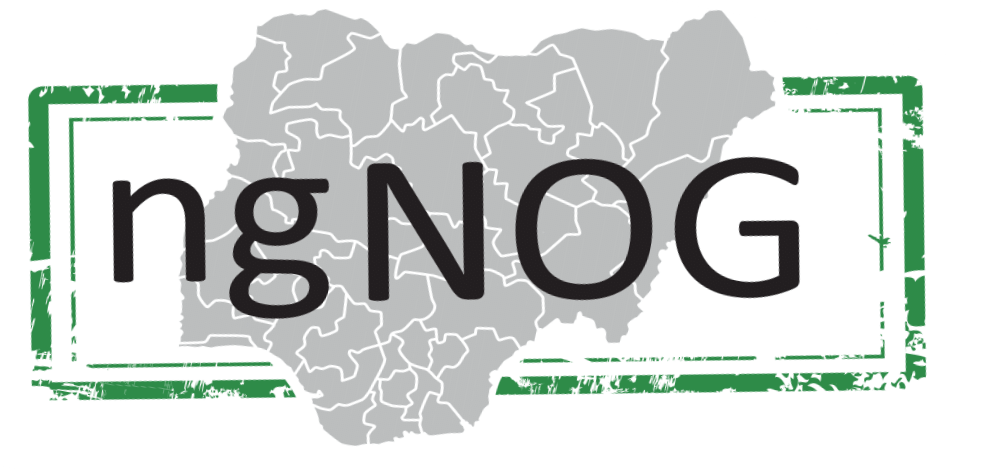
The Nigerian Network Operators Group (ngNOG) is a forum for cooperation and the exchange of technical information between operators of Internet-connected networks in Nigeria. Since 2006 ngNOG have enabled collaboration and sharing of experience within the Nigerian communication technology ecosystem, ngNOG has also helped to bring global best practices to networking in Nigerian Higher Education and facilitate the setting of internet industry standards in Nigeria.
The Nigerian Network Operators Group (ngNOG) is a forum for cooperation and the exchange of technical information between operators of Internet-connected networks in Nigeria. Internet Technology (INET) Workshops were introduced by the global Internet Society (ISOC; http://www.isoc.org) in 1993, and were held in eight locations around the world from 1993 – 2000. They were organized annually in a selected country at great costs and with limited per country participation as all countries of the world were entitled to send delegates. To accelerate the rate of capacity building and reduce costs of travel and participation, communities around the world were requested to take-over responsibility for these workshops while ISOC continued to develop and update training materials. This gave rise to annual regional “Network Operators Group” (NOG) Workshops, such as the North American Network Operators Group(NANOG) and the African Network Operators Group (AfNOG; http://www.afnog.org). With volunteer support from the Network Start-up Resource Centre (NSRC; http://www.nsrc.org) and other helpers, and building on materials and experience of earlier workshops in each case, AfNOG workshops have so far been holding annually in various African countries since 2000. For exactly the same reasons and especially in Africa where international travel is cumbersome and costs are high, countries have been encouraged to domesticate and locally deploy these workshops. Accordingly, for the Nigeria ICT Forum of Partnership Institutions (Forum; http://www.forum.org.ng), hosting AfNOG in Nigeria and organizing annual Nigerian Network Operators Group (ngNOG) workshops, constituted our main capacity building planned activities. NOG workshops are annual events and open to all, however participation thus far has tended to be dominated by Internet Service Providers (ISPs) and the private sector. Therefore, to further accelerate capacity building in the country while ensuring adequate participation of Nigerian Academic Network Operators, the Forum’s main strategy is to ensure that member institutions host and institutionalize ngNOG workshops and training. In pursuit of this systematic capacity-building strategy, with support from the MacArthur Foundation, the Carnegie Corporation of New York, the NSRC, AfNOG and many Nigerian and international partners, the Forum successfully organized a Preparatory Nigerian Network Operators Group (Pre-ngNOG I) workshop and meeting at the University of Ibadan from July 18 – 21, 2006. This workshop introduced 35 participants drawn from the Forum institutions and others including several Government agencies to the UNIX Operating System and UNIX System Administration. FreeBSD was the UNIX flavor for the training. The purpose of Preparatory Nigerian Network Operators Group was to accelerate ICT capacity building and prepare delegates for more advanced training on Network Infrastructure and Network Services at the Nigerian Network Operators Group workshop organized in November 2006, and the 8th African Network Operators Group (AfNOG) Workshop and Meeting (http://afnog.org), hosted in Abuja from 23rd April to 4th May, 2007. The Nigerian Network Operators Group (ngNOG) Workshop and Meetings has become an annual event, held usually in October/November. It continues to evolve in content, tracks, style, diversity, and delivery in response to the needs of the Nigerian network operators community.
Years Of Experience
ngNOG
The foremost capacity-building activity of ICT personnel and other stakeholders in Nigerian Higher Education.
In thirteen previous editions, the workshops have enabled learning from seasoned instructors and interaction between techie peers and management

ngNOG brings together individuals and organizations dedicated to advancing the country’s network infrastructure to enhance the connectivity and digital landscape of Nigeria.
Copyright © 2025 Nigerian Network Operators Group. All Rights Reserved.